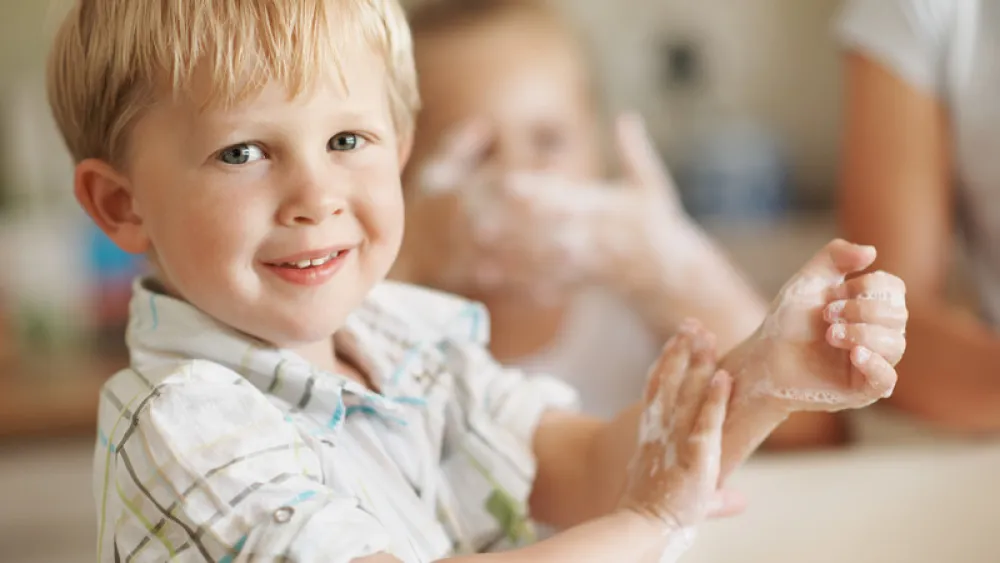Family Health
Making Handwashing a Habit


Little germ machines
Despite any parent’s best intentions, children are pretty dirty creatures. They explore the world, get into everything, and most often use their hands as their initial point of contact. Of course, then they also touch their eyes, face, mouth and most importantly, other people. And as winter viruses are currently spreading like wildfire – it’s time we parents take a good look at how we can keep our little germ machines in check.
Numerous studies have shown hands are the primary carriers of infections. The simple truth is that handwashing is the single biggest thing one can do to control and prevent the spread of infection.
Dr. Matthew Gibson
Methodist Physicians Clinic pediatrician
So what should parents and kids do to keep themselves squeaky clean and healthy? Teach them how to properly wash their hands.
How to wash
- Thoroughly wet your hands, preferably with clean running water. Just the mechanical aspect of rinsing with water removes much that can soil hands.
- Apply liquid, foam or dry bar soap to both hands. Use regular soap, as anti-bacterial soap is not recommended or necessary. If using bar soap, make sure it can thoroughly dry after use. Bar soap that sits in water and remains wet has been shown to carry Pseudomonas, a common bacteria found in water.
- Rub your hands together and scrub all surfaces – front and back as well as between fingers – for 10-15 seconds. While this seems like an instant, it feels like an eternity when actually washing. Have your child hum/sing a short song (like Happy Birthday) or say a nursery rhyme (like Humpty Dumpty) to remind them to scrub long enough.
- Rinse your hands completely with clean, running water.
- Dry thoroughly with a clean, dry towel.
When to wash
A big key for children is making sure they know when exactly to wash their hands. After the bathroom is always key, but they should also wash before and after meals, when done playing outside, after touching pets or animals, after coughing or sneezing, or anytime you can see they are dirty. If a child is sick with a cough or cold, they’re going to become best friends with the sink.
Make it a habit
Whether it is saying please or thank you or brushing their teeth every day and night, the key to hand-washing success and infection prevention is consistency and making the process a habit. If a child gets into the routine at home, they’re going to be more likely to continue the habit at school, a friend’s house or in public. Make it fun by allowing them to pick out a special color or scented soap just for them and get them excited about it.
And while your child may be good at forming a habit, just as it is at my own house, kids may need a reminder.
Need more help talking to your kids about handwashing? Don’t hesitate to ask your Methodist Physicians Clinic pediatrician at your next visit.


